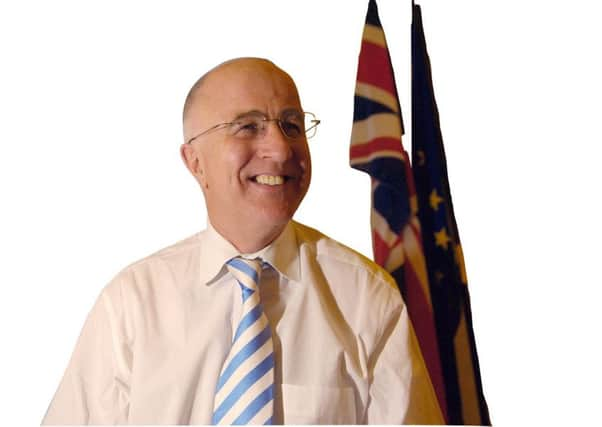COMMENT: We're in a Brexit stalemate, by former minister for Europe Denis MacShane


The debate takes place at St George’s Church in Portsea at 6.45pm. Tickets cost £12.50.
Mr MacShane’s new book Brexit No Exit. Why Britain (in the end) Won’t Leave Europe is published this month. He is a senior adviser at Avisa Partners, Brussels, working with firms and government on assessing risks arising from the Brexit process.
Here he writes exclusively for The News.
For more information go to portsmouthfestivities.co.uk
___________________________________________________________
Advertisement
Hide AdAdvertisement
Hide AdHow Much Brexit Do We Want – Full Amputation or Gentle Separation?
A year ago 37 per cent of the total registered electorate voted to leave the European Union.
It was a hard fought campaign with accusations and insults hurled freely.
The BBC’s Andrew Marr described it as a ‘rebellion’ like Wat Tyler’s uprising against all-powerful authority in the Middle Ages.
Advertisement
Hide AdAdvertisement
Hide AdIn fact we now know that just five of the richest men in England paid for 61 per cent of the Leave campaign.
All this century there has been non-stop negative coverage of Europe in most of our mass circulation papers with a permanent slot for the public school-boy ex-city trader, Nigel Farage, on most BBC TV and radio programmes.
The Remain campaign was useless. A disliked George Osborne, an unpopular anti-EU Jeremy Corbyn and a Nick Clegg who had destroyed his party by taking it into bed with the Tories in exchange for the vanity of red boxes and chauffeured car were no match for the demagogy of Boris Johnson or the sheer populist appeal of Nigel Farage.
But still the vote was narrow. Instead of uniting the nation Mrs May became prime minister and adopted most of Ukip’s hardline approach. She ignored the 48 per cent who voted to stay in Europe. They took their revenge at the general election when Mrs May’s Brexit manifesto was rejected by voters.
Advertisement
Hide AdAdvertisement
Hide AdNow we are in a stalemate. People are beginning to realise that Brexit is a plural not a singular concept. There are many Brexits – from the full-on rupture of access to the Single Market which was the big enticement for 1,000 Japanese and other foreign firms to set up in the UK – to a more nuanced intelligent Brexit which would return sovereignty to the House of Commons but like Norway or Switzerland ensure there are no economic barriers.
Much of the noise over Brexit was about European citizens working in the UK. But they have stopped coming. Just 26,000 European came to work in the first three months of 2017, compared to 40,000 for the same period last year or 110,000 in 2007.
The biggest quota of EU citizens working on the 2012 London Olympics site came from Ireland. No one is proposing the stop Irish men and women emigrating to England to work.
There are many ways of slowing down and managing migration using internal labour market measures and the EU exempts state employment like the NHS from freedom of movement obligations.
Advertisement
Hide AdAdvertisement
Hide AdOne million British ex-pats with a home or a base in Spain will face reciprocal discrimination if we start to ban Europeans from working or staying here.
Britain currently lies 15th in the EU league table of exports per head. Last year we exported $18 billion of goods and services to China. Germany exported $85bn. Germany can do this trade from inside the customs union and single market. Why can’t Britain?
Leaving the customs union means every good or component or agricultural product entering or leaving the UK, including Northern Ireland, has to be customs’ cleared. Putting back custom control posts on the border between Northern Ireland and Ireland is a recipe for bringing back to life all the sleeping demons of Northern Ireland enmities.
Now that Article 50 negotiations have started it is time to move from the rhetoric and exaggerated claims of the referendum campaign last year. Brexit is the biggest challenge and potentially the biggest economic and geo-political disaster Britain has faced since the 1930s.
Last year we had a referendum and this year an election – each producing different results. Britain now needs a mature, calm conversation on our future relationship with Europe before it’s too late.